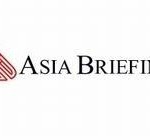On April 13, China’s State Council released a new foreign investment policy document aimed at promoting a positive business climate while also cutting funds to projects which harm the environment. The “Opinions of the State Council Concerning Further Improving the Work of Utilizing Foreign Investment” continues a trend in the government’s thinking toward foreign direct investment that favors investment in higher, value-added industries and enterprises that invest in China’s central and western regions.
This opinion precedes the anticipated revisions to the Catalogue for the Guidance of Foreign Investment Industries, the government’s primary FDI document that delineates which industries are open to foreign investment in China.
The new policy covers four areas: improving the utilization of FDI; encouraging FDI in central and western China; diversifying FDI; and optimizing the regulatory regime for FDI.
Some important changes in the new policy:
-
Foreign investment is encouraged in high, value-added and efficient operations as well as China’s interior and western regions
-
Programs providing preferential policies in listed industries are now open to foreign investment
-
Domestic IPOs are encouraged for qualified FIEs
-
Qualified FIEs may acquire land use rights at 70 percent of the minimum price
-
The threshold amount for local approval of foreign-invested projects has been raised from US$100 million to US$300 million
-
FIEs facing capital shortages will be allowed to extend their capital contribution schedule
The new policies will continue to support Chinese A-share listed companies in promoting domestic and foreign investment. The guidelines will also standardize foreign companies’ domestic investment in addition to corporate mergers and acquisitions.
Companies targeted include those in high-tech industries, service sectors, energy-saving, and environmentally friendly projects.
According to the new policy, a national security examination mechanism will be introduced soon for foreign-funded companies’ merger and acquisition operations in China. Qualified companies are now allowed to issue corporate bonds or medium-term bills and to go public.
The policy also encourages foreign enterprises to set up regional headquarters, research and development centers, procurement hubs, financial management and other functional offices in China, especially in central and western regions with environmentally friendly and labor-intensive projects.
Importing items and equipment for scientific and technological development by qualified foreign-funded R&D centers will be exempt from tariffs, VAT on import and goods and services tax by the end of 2010.
In addition, foreign investors now qualify for preferential policies made available under the Industry and Reinvigoration Plans issued in 2009 which gave incentives to enterprises engaged in the automotive, logistics, information technology, petrochemical and equipment manufacturing industries.
Land use projects that fall under the “encouraged” list of industries in the catalogue are now able to acquire land use rights on a preferential basis at the aforementioned discounted prices.
China is also reconsidering some criteria for its “indigenous innovation products” under Notice 618 and has drafted a new notice which should help to alleviate some concern among foreign investors over government restrictions on foreign investment on the mainland.
The new notice may remove some of the requirements of the earlier notice, including the particulars of intellectual property ownership, trademark registration and technology requirements for businesses in China. Those prior requirements were widely criticized by foreign investors as protectionism for domestic companies.
According to Notice 618, issued on November 15 last year, China will develop a catalogue of products which will be given preference by the government when they are making purchases.
The catalogue includes the following products:
-
Computing and application hardware
-
Telecommunications products
-
Office appliances
-
Software Alternative energy and equipment
-
High-efficiency energy saving products
The previous notice stipulated that products classified as innovative and of high quality must be produced by enterprises with full ownership of the intellectual property in China. It also stated that the trademarks have to be owned by Chinese companies in order to be accredited.
For business advisory, tax, accounting, payroll, due diligence and audit services in China, please contact Dezan Shira & Associates at info@dezshira.com or visit www.dezshira.com.
This article was originally published by Asia Briefing. You can read more articles here.
You can read exclusive content from Gateway House: Indian Council on Global Relations, here.
Copyright © 2010 by Asia Briefing.


